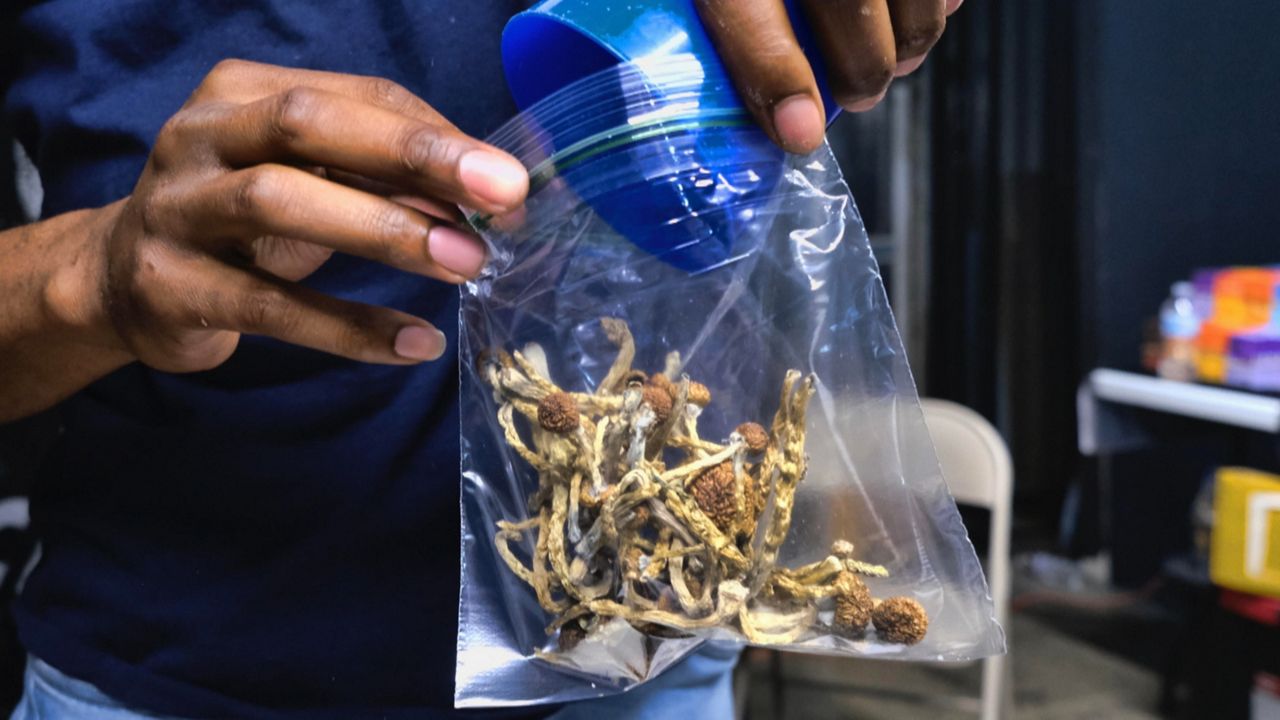Army veteran Nicolas Hamlin believes hallucinogenic mushrooms saved his life.
A Portland native, he joined the military in 2000 and completed multiple deployments to the Middle East. After his service ended, he suffered from post-traumatic stress disorder, anxiety and “my own demons.”
“I stand before you today as living proof of the healing ability psilocybin has to offer and plead for the approval of LD 1914,” he told members of the Veterans and Legal Affairs Committee.
Hamlin said psilocybin — an ingredient found in what are sometimes called “magic mushrooms” — helped bring him calm and peace, leading to self-confidence.
“This has helped me and many others maintain productive lifestyles,” he said. “I wish that psilocybin as a treatment option be available to those that will benefit from it.”
Hamlin was one of many people who testified Monday in support of the bill, which would direct the Maine Department of Health and Human Services to create regulations that would allow physicians to recommend its use at designated facilities for those who are 21 and older.
It is modeled on laws in Colorado and Oregon, where the substance has been legalized, said bill sponsor Sen. Donna Bailey (D-Saco).
She said psilocybin helps those with substance-use disorder and those who are addicted to nicotine and alcohol. She pointed to statistics that show Maine continues to set records from the number of people dying from drug overdoses.
“I can’t help but ask, why not try something new?” she said. “Why not try all the tools we have? Why not think outside the box?”
She said her bill would allow licensed facilitators to administer the drug. It would not allow any retail sales of the drug and would prohibit use by those younger than 21.
She and others compared it to the system in place for medical marijuana in which licensed caregivers grow cannabis for a certain number of patients. Like cannabis, psilocybin remains illegal federally, so it cannot be prescribed by physicians, but could be recommended.
Bailey’s bill has bipartisan support, with co-sponsors including Sen. Eric Brakey (R-Auburn) and Rep. Austin Theriault (R-Fort Kent).
Theriault, a professional race car driver, said he’s met those with traumatic brain injuries and substance use disorder who have been helped by psilocybin.
For some, it’s like “100 sessions of therapy in eight hours.”
“The results of this are fairly quick and fairly substantial without a lot of side effects,” he said.
Yet the Maine Center for Disease Control and Prevention expressed “several concerns” with the bill and asked the committee to carry it over to next year.
“While there may be early evidence for the use of psilocybin to assist in treatment of certain disorders, this research is ongoing and there are not currently clinical practice guidelines or Food and Drug Administration-approved treatments to ensure safe and appropriate use of the therapy,” Nancy Beardsley, acting CDC director, wrote to the committee.
Another powerful group with significant concerns is the Maine Municipal Association. They argue that the Legislature hasn’t yet resolved issues with medical and recreational cannabis, so it would be ill-advised for the state to venture into another type of “controversially regulated business,” Rebecca Lambert of MMA told the committee.
“Adding to the confusion, LD 1914 significantly restricts local regulatory authority and does not offer an option to opt-in to allow these businesses to operate within their borders, as has been done with cannabis businesses,” she said.
While many details are yet to be worked out, Dr. Selma Holden, an associate professor at the University of New England and physician at Riverbird Clinic in Portland, said the time has come to offer patients more options.
“We need more proven psychedelic therapy options to be legally available within Maine as we become increasingly aware of Mainers who are using psilocybin mushrooms in underground settings to address particularly challenging conditions such as post-traumatic stress,” she said.
And because they fear prosecution, they don’t discuss that use with medical professionals.
“This fear propagates riskier use and even more concerning it can further traumatization,” she said.
The committee will consider the legislation at a work session in the coming weeks.



